Lyra McKee’s partner Sara Canning on her lasting legacy: ‘She’s encouraging young LGBTQ+ people’
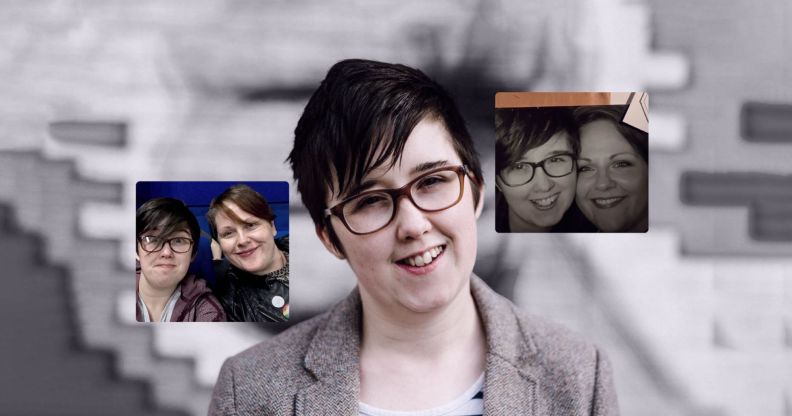
Lyra Mckee and her partner Sara Canning, who wants to make sure the world doesn’t “forget her”. (PH/Channel 4)
Sara Canning, the partner of murdered Northern Irish investigative journalist Lyra McKee, tells PinkNews why she’ll never stop reminding the world about her brilliance.
So many wonderful words have been written about McKee, Canning tells PinkNews, but so few have got to the real heart of who she was. “It was a lovely, superficial, polished version of this person who was amazing, but who was also… funny, who could be really naive and very stupid sometimes for someone so smart.”
It’s one of several reasons why Canning, who met McKee on dating app Plenty of Fish in 2018, remains committed to telling her story, and why she was adamant that the Channel 4 documentary Lyra should go ahead.
Directed by a close friend, BAFTA-award winner Alison Millar, Lyra is an intimate portrait of McKee: a tenacious journalist and loving daughter, a sister, a friend and partner, and a young woman who grew up in Belfast in the shadow of The Troubles.
McKee was just 29 when she was shot while reporting on an unfolding riot in Derry, on 18 April 2019 – almost 21 years to the day after the signing of the Good Friday Agreement.
The response following her death was overwhelming. In Derry, scores of weeping people lined the streets for vigils, holding Pride flags and papers with her face on. Leaders from all political factions, including then prime minister Theresa May and then DUP leader Arlene Foster, attended her funeral.
The queer community banded together in solidarity. Canning recalls receiving a card from London Older Lesbian’s Network, despite the group not having her address. “It got through to me. The Post Office got it to my door. I just thought that was such a beautiful gesture,” she says.
There were innumerable reasons why McKee’s death touched the lives of so many. First and foremost, she was a notable writer on the rise. By 16, she’d been awarded Sky News’ young journalist award, and 10 years later she was on Forbes’ 30 Under 30 in Media list.
In Lyra, we see her in 2008 at just 18 years old, fizzing with enthusiasm as she discusses the stories and injustices she wanted to uncover: a businessman exploiting his working-class employees, the single mother whose son took his own life, becoming yet another young person to add to Northern Ireland’s high suicide rate. The deaths were a trend the young journalist referred to as “the suicide of the ceasefire babies”.
By 2018, she’d signed a two-book deal with renowned publisher Faber and Faber. One of those was The Lost Boys, which was unfinished at the time of her death.
It explored the case of eight boys who went missing in Belfast between 1969 and 1975, the early days of The Troubles, with a focus on 11-year-old Thomas Spence and John Rodgers, 13, who disappeared from a bus stop in 1974.
“She was wedded to the idea of finding their bodies and reuniting the families so that they could properly bury the boys and have their peace,” Canning says. McKee even dragged her into researching the case, sending her to a newspaper library to dig for evidence.
“She was like a bloodhound,” Canning says.
But that wasn’t the full Lyra McKee story. She was a dogged, fastidious journalist who went “hell for leather” connecting with the community and researching her stories – in Lyra, one of her sisters goes through dozens of notebooks, brimming with story ideas – but she was also deeply anxious about her craft.
“Writing is one of my greatest loves, but also my biggest fear,” McKee says in the documentary. “I choke up. I feel sick sometimes when I sit down at the computer. It can cripple you.”
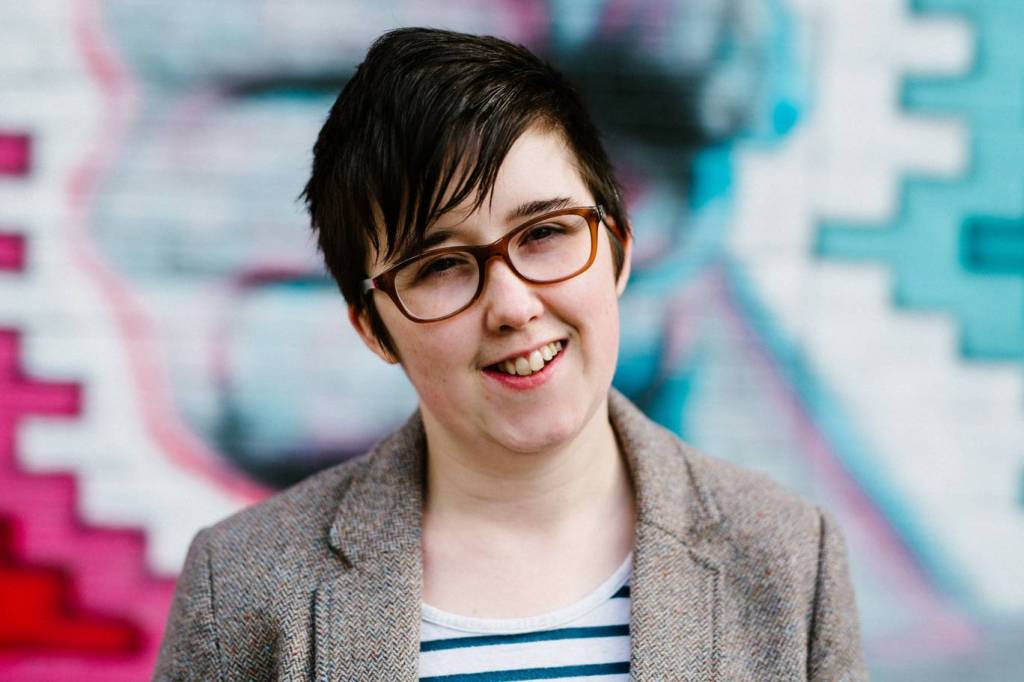
Canning recalls: “She wrote really beautifully, and she was a fantastic writer, but getting her to write was an absolute nightmare.
“I kind of sometimes had to give her tough love. She would quite happily be babied. Sometimes I felt like a wee b**ch because I had to be quite forthright with her, but if I hadn’t, she wouldn’t have gotten anything done.”
While the world remembers her as the laser-focused writer with the world at her fingertips, Canning wants to make sure her partner is remembered as a human, first and foremost.
Before they headed to watch the riot in Derry unfold on that fateful night, the pair had been at a McDonald’s. She was also “a real sugar fiend,” Sara smiles. “She loved nothing more – it turned my stomach – [than] a white chocolate mocha from Costa. She would go into a kind of a sugar coma, she would be kind of vacantly staring at you, wanting to go home for a sleep.”
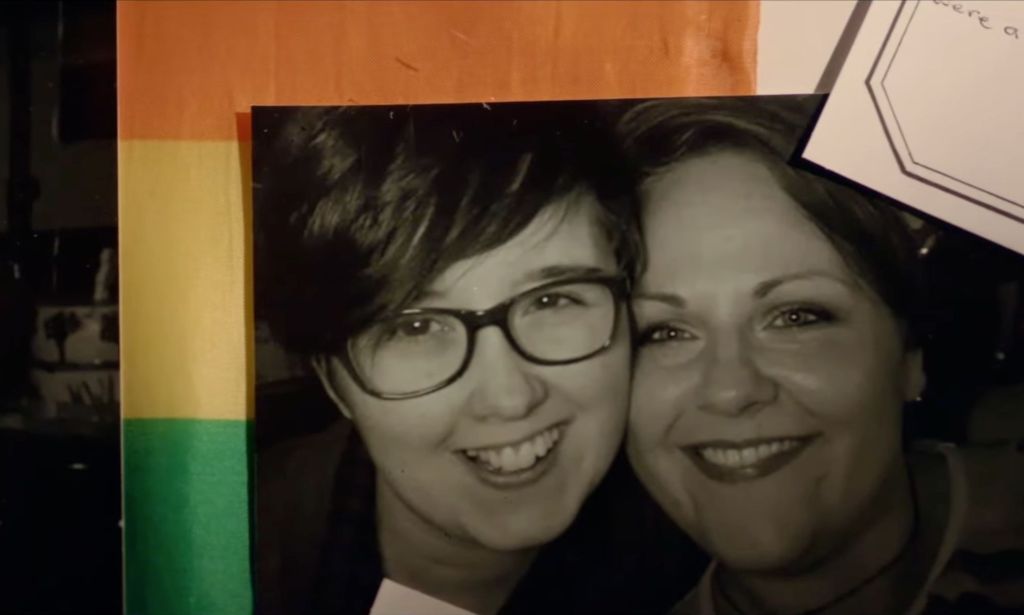
She adored spending time with her young niece, and was desperate for every dog she met to like her (although she actually preferred cats, and had a 16-year-old one called Marie).
“She was like a child at heart. She loved nothing better than sitting down and sticking on whatever the latest Marvel was,” Canning adds. “We watched The Punisher and stuff before she died, that was our weekly thing. We’d sit down with a couple episodes of The Punisher and just anything to do with comic books and general nerdery.”
McKee was not the only one to die violently following the signing the Good Friday Agreement, although not all victims before her were afforded the outpouring of grief she received.
“You have victims who are characterised sometimes by what their life has been like, and some of them led hard lives,” Canning says. Maybe some had former connections to paramilitaries, others might have dealt drugs. But, because of her blossoming career, McKee “was this kind of perfect victim”.
It was an idea the journalist herself would’ve hated, Canning thinks. “It made it very easy for them to talk about [her death] as if it made her somehow less deserving. Nobody deserves to die… that was one of the things that Lyra was very annoyed at.”
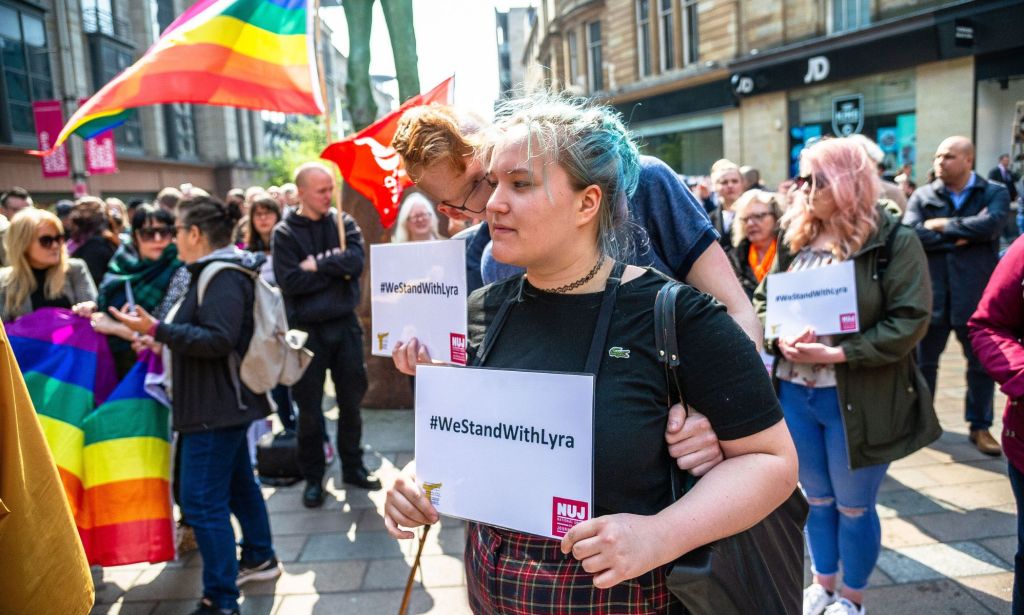
There were, her work suggests, so many things that unsettled McKee about life in Northern Ireland. In her first book Angels With Blue Faces, which was published shortly after her death, she wrote: “Northern Ireland is a beautiful tragedy, strangled by the chains of its past and its present.”
But, she loved it deeply: “It’s also my home,” she wrote.
It’s another reason for Canning to keep speaking out: she doesn’t want people’s perceptions of her home country to just be what they see on the news.
“We both loved Northern Ireland and Ireland as a whole, and I see a lot of misrepresentation of my home with people here who use Lyra as a stick to beat other people with,” she says.
Northern Ireland’s troubled history with LGBTQ+ equality was another thing that McKee fought passionately to correct.
“I’m an LGBTQ+ gay woman who grew up Catholic in Northern Ireland,” she says in the documentary. “Religion still plays a massive role in this country, and the message that we constantly get from our public figures is that being LGBTQ+ is wrong.”
In 2014, she penned an emotive letter to her 14-year-old self, offering hope to other young queer people in the country, and urging Christians to think twice before spouting homophobia. McKee never got to see same-sex marriage legalised in Northern Ireland, it became law in January 2020. Her activism lives on, however.
“Keep hanging on, kid. It’s worth it. I love you”, are the final words in that letter to her teen self, and are now painted on a mural in Florida.
It’s not lost on Canning how, as Florida faces some of the worst anti-LGBTQ+ legislation seen this century, the hope her partner offered herself is being passed on to those who need it most.
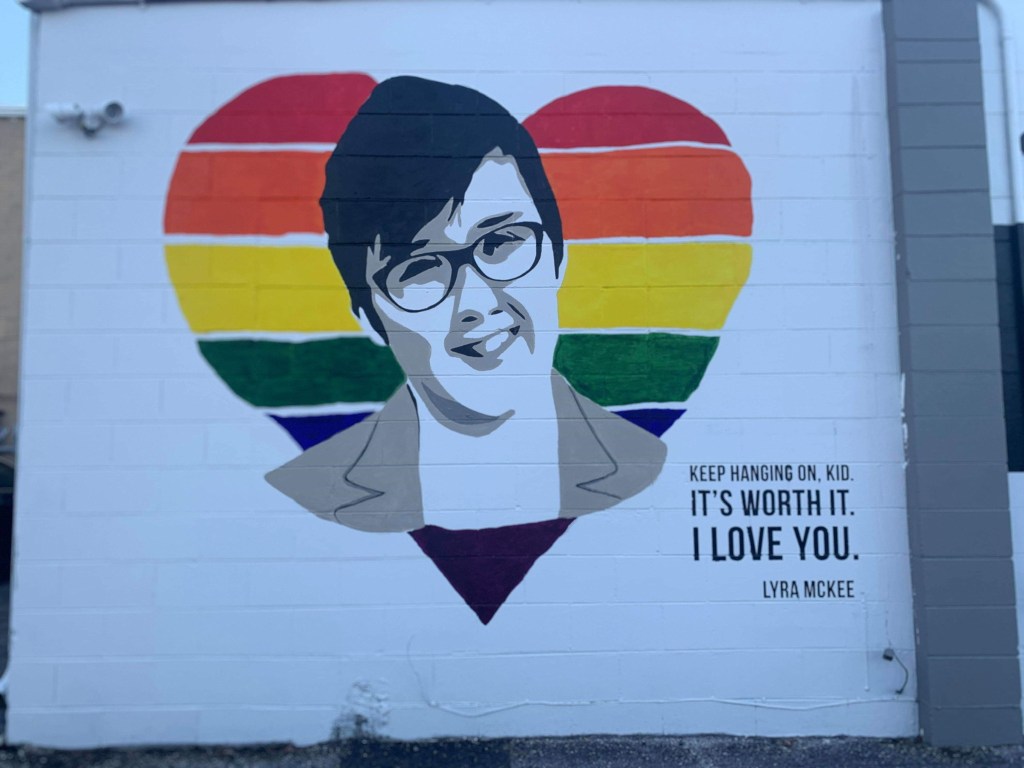
“She’s remembered, and she’s there, and she’s encouraging other young LGBTQ+ people, which I think is massively important,” Canning says. She wants to keep up that work simply by showing that queer women exist and that LGBTQ+ relationships are normal.
“We’re not this over-sexualised idea that a lot of people have of us. People love each other, they have a normal life – you know, the bog standard, boring, on-the-sofa, watching s**t TV,” she says.
“People sometimes don’t know how to express sympathy because they don’t recognise your relationship as being like theirs. It’s really important for people to see the other side of it. We have normal lives. We have loss in the same way they do. We grieve the same way they do.”
Canning thinks back to the support she’s received from the community, from the London Older Lesbian’s Network, to the queer artists who’ve painted murals, and the countless people who approached her at Belfast Pride, just months after McKee’s death.
Now, she’s using her platform to give back to the community that gave her so much. “It has been really heart-warming,” she says. “You never feel more affirmed than when you’re surrounded by a bunch of queers doing their thing.”
Two men charged with the murder of Lyra McKee have pleaded not guilty but no date for a trial has been set yet. They and a third man also denied charges linked to the riot.
“We’ve spent so many hours already in court and we still haven’t gotten to the main body of the trial,” Canning says. “Sometimes it’s a struggle. Sometimes it sort of feels like nothing’s happening for a really long time, and then it all just comes at once. I’ve been up and down.”
It’s may have been a really tough four years, but she won’t stop reminding the world of who Lyra McKee was, and what she was – and could have been – capable of.
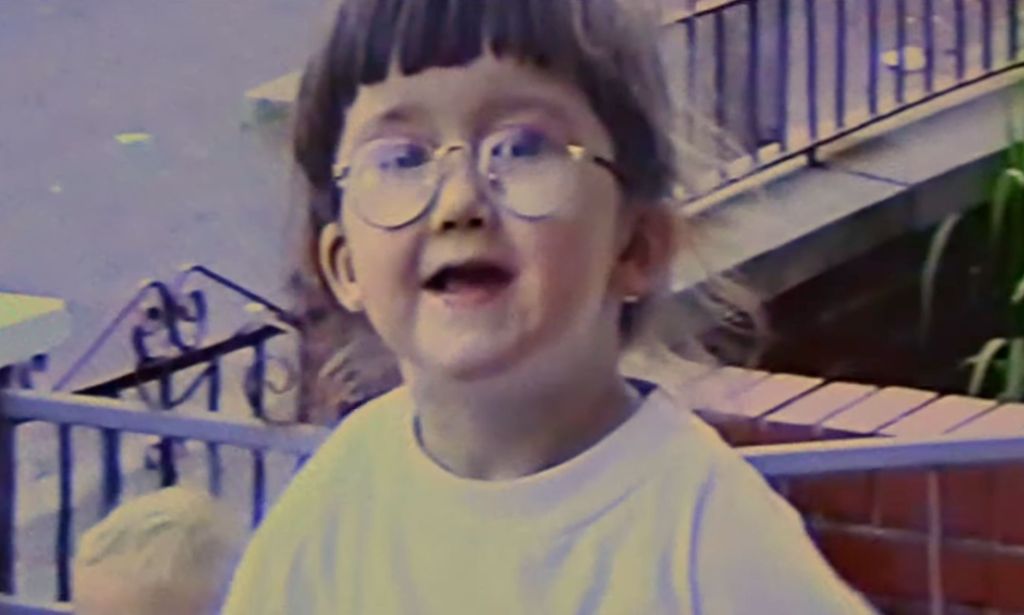
McKee had her hopes set on being published in The New Yorker magazine, while there were early plans to turn one of her books into a TV series.
There was talk of moving to London too, and the couple were planning to marry. A “surprise” proposal McKee was planning during a trip to New York was ruined when she couldn’t contain her excitement, and simply showed Canning a photo of the engagement ring on her phone.
“I don’t want anyone to forget her,” Canning says. “I wanted people to get to know her and to realise why such a big deal was made at the time [of her death].
“Had the roles been reversed, Lyra would never [have] shut up about it. I owe it to her to do the same.”
Lyra is streaming now on Channel 4.
How did this story make you feel?

